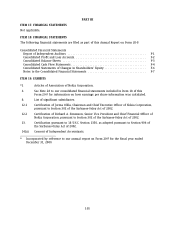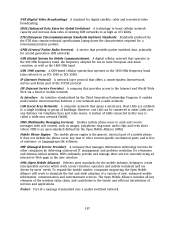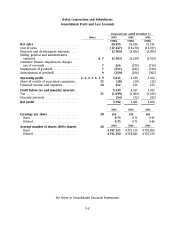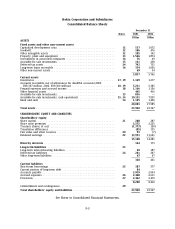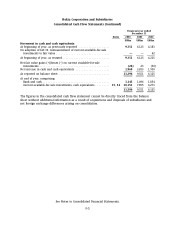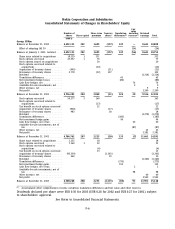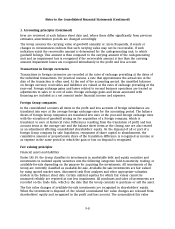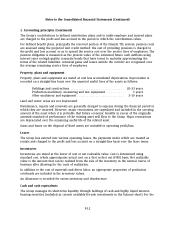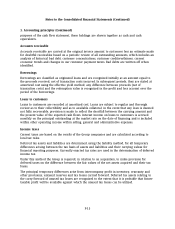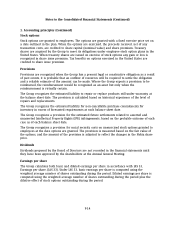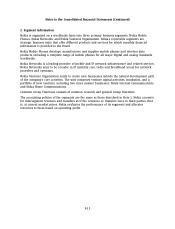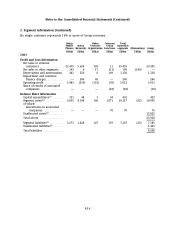Nokia 2003 Annual Report Download - page 116
Download and view the complete annual report
Please find page 116 of the 2003 Nokia annual report below. You can navigate through the pages in the report by either clicking on the pages listed below, or by using the keyword search tool below to find specific information within the annual report.Notes to the Consolidated Financial Statements
1. Accounting principles
Basis of presentation
The consolidated financial statements of Nokia Corporation (‘‘Nokia’’ or ‘‘the Group’’), a Finnish
limited liability company with domicile in Helsinki, are prepared in accordance with International
Accounting Standards (IAS). The consolidated financial statements are presented in millions of
euros (EURm), except as noted, and are prepared under the historical cost convention except as
disclosed in the accounting policies below. The notes to the consolidated financial statements also
conform with Finnish Accounting legislation. On January 22, 2004, the Group’s Board of Directors
authorized these financial statements for issue.
In 2001 the Group adopted IAS 39, Financial Instruments: Recognition and Measurement (IAS 39).
The effects of adopting the standard are summarized in the consolidated statement of
shareholders’ equity and cash flow statements.
Use of estimates
The preparation of financial statements in conformity with generally accepted accounting
principles requires management to make estimates and assumptions that affect the reported
amounts of assets and liabilities and disclosure of contingent assets and liabilities at the date of
the financial statements and the reported amounts of revenues and expenses during the reporting
period. Actual results could differ from those estimates.
Principles of consolidation
The consolidated financial statements include the accounts of Nokia’s parent company (‘‘Parent
Company’’), and each of those companies in which it either owns, directly or indirectly through
subsidiaries, over 50% of the voting rights, or over which it has control of their operating and
financial policies. The Group’s share of profits and losses of associated companies (generally 20%
to 50% voting rights or over which the Group has significant influence) is included in the
consolidated profit and loss account in accordance with the equity method of accounting.
All inter-company transactions are eliminated as part of the consolidation process. Minority
interests are presented separately in arriving at the net profit. They are also shown separately
from shareholders’ equity and liabilities in the consolidated balance sheet.
Profits realized in connection with the sale of fixed assets between the Group and associated
companies are eliminated in proportion to share ownership. Such profits are deducted from the
Group’s equity and fixed assets and released in the Group accounts over the same period as
depreciation is charged.
The companies acquired during the financial periods presented have been consolidated from the
date on which control of the net assets and operations was transferred to the Group. Similarly the
result of a Group company divested during an accounting period is included in the Group accounts
only to the date of disposal.
Goodwill
Acquisitions of companies are accounted for using the purchase method of accounting. Goodwill
represents the excess of the purchase cost over the fair value of assets less liabilities of acquired
companies. Goodwill is amortized on a straight-line basis over its expected useful life. Useful lives
vary between two and five years depending upon the nature of the acquisition. Expected useful
F-7


